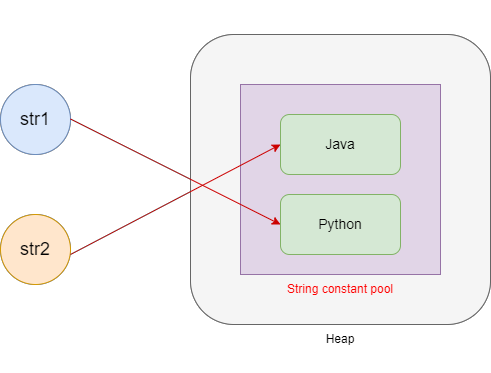Why Are Strings Immutable in Java? Key Reasons and Benefits Described
Why Are Strings Immutable in Java? Key Reasons and Benefits Described
Blog Article
Immutable Strings: A Secret Element in Ensuring Data Consistency and Integrity
In the realm of data management, the importance of immutable strings can not be overstated. The idea of unalterable strings goes beyond plain formality; it is a cornerstone in the complicated web of data governance.
The Principle of Immutable Strings
Immutable strings, a basic principle in programs, describe strings that can not be changed as soon as they are produced. Basically, once a string worth is appointed, any procedure that shows up to modify the string really creates a new string. This immutability makes sure data consistency and integrity in applications, as it avoids unexpected adjustments to the initial data.
Advantages in Data Consistency

Information consistency is essential in different elements of software development, including database monitoring, multi-threaded environments, and distributed systems (Why are strings immutable in Java?). Unalterable strings add dramatically to achieving this uniformity by stopping data corruption due to simultaneous gain access to. In scenarios where multiple procedures or threads connect with the very same information at the same time, immutable strings serve as a guard against race conditions and synchronization issues
In addition, the immutability of strings simplifies debugging and testing processes. With unalterable strings, programmers can trust that when a string is established, it will continue to be unchanged, making it simpler to map the source of mistakes and making sure that test situations produce regular results. This dependability in data taking care of eventually causes a lot more durable and stable applications.

Applying Unalterable Strings
Guaranteeing the immutability of strings needs a thoughtful approach to their execution in software application growth. One crucial strategy is to make string classes in such a way that avoids alterations when a string item is created. By making strings immutable, programmers can boost data consistency and integrity in their applications.
To execute unalterable strings properly, developers must favor producing new string things rather than customizing existing ones. This technique makes sure that once a string is appointed a value, it can not be altered. In addition, any procedure that shows up to modify the string must develop a new string with the preferred adjustments rather than changing the initial.
Additionally, using immutable strings can streamline concurrency administration in multi-threaded environments. Given that immutable strings can not be visit the site transformed after development, they can be securely shared amongst numerous strings without the threat of information corruption.
Role in Integrity Assurance
In software program growth, the application of unalterable more info here strings plays an important function in making certain the dependability of data operations. Immutable strings, when created, can not be modified, ensuring that the data they stand for remains constant throughout the application's execution. This immutability residential property offers a level of assurance that the data being processed will not be unintentionally altered, causing unexpected outcomes or errors in the system.
By including unalterable strings right into software program layout, programmers can improve the dependability of their applications by lessening the threats connected with mutable data - Why are strings immutable in Java?. Immutable strings assist in protecting against information corruption or unexpected adjustments, which can be particularly vital when handling sensitive details or when information honesty is critical
Additionally, using unalterable strings simplifies simultaneous processing, as multiple strings can securely gain access to and share string information without the risk of one string modifying the content while an additional reads it. This element contributes substantially to the overall integrity of the software application system, ensuring foreseeable and constant actions in information taking care of operations.
Applications and System Assimilation
The seamless integration of unalterable strings right into numerous applications and systems is essential for making certain durable information consistency and dependability throughout diverse technological settings - Why are strings immutable in Java?. Immutable strings play an essential duty in enhancing the stability of data exchanges and communications within complex software ecological communities. By incorporating immutable strings into applications, developers can minimize the risks associated with information tampering, unauthorized adjustments, and unintended alterations, thus strengthening the total security position of the system
In the context of system combination, unalterable strings work as a foundational element for developing secure interaction networks and assisting in seamless data transfers between different components. Their unalterable nature ensures that data transmitted in between systems remains unchanged and proven, decreasing the chance of variances or mistakes that could compromise the honesty of the whole system. In addition, unalterable strings can boost interoperability between inconsonant systems by providing a standard layout for information representation, making it possible read review for a lot more efficient information processing and exchange protocols throughout interconnected systems. By embracing immutable strings in applications and system combination procedures, organizations can strengthen their data infrastructure and maintain the integrity and consistency of their information properties.
Verdict
To conclude, unalterable strings play a critical duty in preserving information uniformity and dependability in various applications and system integrations. By ensuring that strings can not be changed as soon as produced, the integrity of data is maintained, minimizing the risk of inconsistencies and mistakes. Implementing unalterable strings can considerably boost the reliability of systems, ultimately causing more precise and reputable data processing.

Report this page